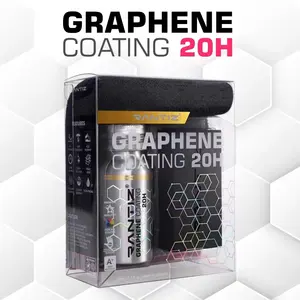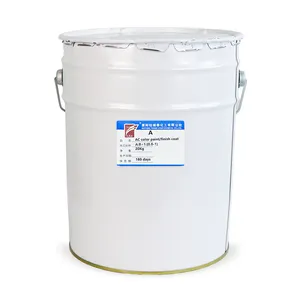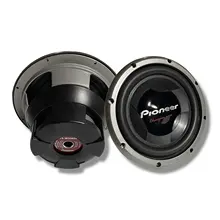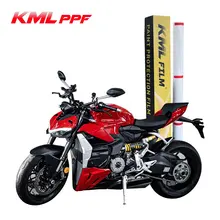What is Nano Coating Technology
Nano coating technology is an innovative approach to surface protection and enhancement that operates at the nanometer scale, often involving coatings and materials with dimensions at least one order of magnitude smaller than conventional coatings. This technology is designed for manufacturers and industries that require advanced protective solutions for their products, including electronics, automotive, medical devices, and more.
The essence of nano coating technology lies in its ability to create ultra-thedimensional protective layers. The coatings can be applied through various methods such as spraying, dipping, or even wiping, and they typically consist of particles or molecules that are engineered to align and form a strong bond with the surface they are intended to protect. These coatings can offer a range of functionalities including anti-scratch, self-healing, anti-corrosion, water and UV resistance, and more.
One of the key principles behind nano coating technology is the use of nanomaterials such as metal oxides (titanium dioxide or zinc oxide) which exhibit unique properties at the nanoscale. For instance, titanium dioxide is known for its high refractive index, which gives coatings a reflective quality that can protect underlying materials from UV radiation. Similarly, self-healing coatings often contain encapsulated nanocapsules that release a curable polymer when a crack forms, effectively healing the coating and preventing further damage.
The adoption of nano coating technology is driven by its numerous advantages over traditional coatings. These include increased durability, enhanced performance in harsh environments, and the ability to maintain aesthetics over time. As businesses across various sectors seek to improve the longevity and effectiveness of their products, nano coating technology presents a compelling solution that can be applied cost-effectively in high-volume manufacturing processes.
Types of Nano Coating Technology
Nano coating technology encompasses various methods designed to apply nanomaterials to different substrates. Here is an overview of some common types:
-
Sol-Gel Coating - This method is widely used for its simplicity and effectiveness in producing thin films. It involves the hydrolysis and condensation of liquid precursors that form a gel. Sol-gel coatings can be applied to a variety of materials including glass and ceramics, offering excellent optical clarity and adhesion.
-
Chemical Vapor Deposition (CVD) - CVD is a prevalent method where a substrate is placed inside a chamber, and a precursor gas is introduced. The heat from the chamber causes a chemical reaction that deposits a coating on the substrate. CVD is often used in semiconductor manufacturing and for high-tech applications where precision and uniformity are critical.
-
Electroplating - While not strictly a coating, electroplating involves depositing a thin layer of metal onto a metal object. This method is particularly useful for decorative applications due to its ability to produce intricate shapes and provide an attractive finish.
-
Physical Vapor Deposition (PVD) - PVD is another type of coating process where a solid material is vaporized in a vacuum chamber and deposited on a substrate. This method is commonly used for metal coatings in automotive and cutting tool industries.
-
Atomic Layer Deposition (ALD) - This technique uses self-limiting chemical reactions to deposit precise and uniform thin films. ALD is suitable for applications requiring high precision and uniform coatings such as electronics and optics.
How to choose Nano Coating Technology
Choosing the right Nano Coating Technology requires careful consideration of the specific needs of your business or application. Here are some key factors to keep in mind:
-
Material Compatibility: Ensure that the nano coating is compatible with the materials you will be coating. For example, some coatings are specifically designed for use with car paint or boat paint, while others work well on various substrates such as glass or plastic.
-
Performance Properties: Evaluate the performance characteristics that are most critical for your application. If scratch resistance is paramount for a car coating, look for options with self-healing features. For electronic components or medical devices, prioritize coatings that offer excellent water repellency and UV protection.
-
Application Method: Consider how the coating needs to be applied based on your capabilities and the size of the surface area being coated. Some coatings are more suited for specific application methods like spraying or dipping.
-
Environmental Considerations: If eco-friendliness is important to your business philosophy or customer base, opt for coatings that are marketed as eco-friendly or sustainable.
About Nano Coating Technology on Alibaba.com
Alibaba.com stands out as a global marketplace that connects businesses with a vast selection of suppliers offering an array of nano coating technologies. For enterprises seeking advanced surface treatments like self-healing or superhydrophobic coatings for their products, Alibaba.com provides a platform where they can find an extensive range of options tailored to meet diverse industrial needs.
The website's intuitive interface allows buyers to filter through choices based on specific functions such as scratch resistance or water repellency, making it easier to locate products that match their project requirements. Additionally, Alibaba.com's Trade Assurance service ensures that transactions are protected until delivery is completed, offering peace of mind to buyers sourcing high-value items.
By facilitating connections between businesses worldwide, Alibaba.com plays a pivotal role in enabling small and medium-sized enterprises to access cutting-edge technologies that can enhance their product offerings. The vast array of nano coating products listed on Alibaba.com reflects not only the diversity of options available but also the potential for businesses to find customized solutions that fit their unique needs—whether it's protecting electronic devices or ensuring the longevity of industrial equipment.
Common FAQs for Nano Coating Technology
What is nano coating in the context of consumer products?
Nano coating refers to a class of coatings that are applied at a molecular level to enhance the performance and durability of various materials. In consumer products, nano coatings are used for their ability to repel water, protect surfaces from stains, and provide a scratch-resistant barrier.
How do nano coatings differ from traditional coatings?
Nano coatings are designed to provide superior protection and performance with thin, invisible layers, while traditional coatings may be thicker and more visible. Additionally, nano coatings often have unique properties such as self-healing or water-repellent features.
Can nano coatings be used on any surface?
Nano coatings are versatile, but their suitability for a specific surface depends on the formulation of the coating and the material it is intended to protect. Surfaces should be clean and dry for the coatings to bond effectively.
Are there different types of nano coatings available for different substrates?
Yes, there are various types of nano coatings, each formulated to suit different substrates such as glass, plastic, metal, and even textiles. It is important to choose a coating that is specifically designed for the material it will be applied to.
How long do nano coatings last before they need to be reapplied?
The longevity of a nano coating varies depending on the type of substrate, the quality of the coating, and the level of abrasion or chemical exposure. Generally, well-formulated nano coatings can last several years before requiring reapplication.
Are there eco-friendly nano coatings options available for businesses?
Yes, eco-friendly nano coatings are available which use sustainable materials or have been formulated to have minimal environmental impact. These may include coatings with lower levels of volatile organic compounds (VOCs) or those that are easier to remove and dispose of responsibly.
What should businesses consider when selecting a nano coating for their products?
Businesses should consider the specific needs of their industry, the types of products they offer, environmental factors like UV exposure or temperature extremes, as well as any desired features such as water repellency or antimicrobial properties.
Can nanotechnology be used to improve the performance of textiles?
Nanotechnology can be used to enhance the performance of textiles by providing water resistance, stain repellency, and wrinkle resistance. This is particularly useful for outdoor gear and performance apparel that require durable and weather-resistant properties.
How does UV light affect nano coatings?
UV light can degrade some coatings over time, causing color changes or loss of function. Coatings intended for outdoor use should be UV-stabilized to prevent UV-induced damage.
Is it possible to customize nano coatings for specific business needs?
Many suppliers offer customization options for nano coatings to fit specific business requirements. This can include custom blends of active ingredients, specific application methods, or tailored performance characteristics.
Can nano coatings be integrated into existing coatings or paints?
Nano coatings can often be integrated into existing coatings or paints to add new functionalities. However, compatibility should be checked to ensure the new coating does not interfere with the existing system.
How does Trade Assurance on Alibaba.com benefit businesses purchasing nano coatings?
Trade Assurance on Alibaba.com provides buyers with payment protection until their order is delivered satisfactorily. This service benefits businesses by ensuring their transactions are secure and their investments are protected.




































 浙公网安备 33010002000092号
浙公网安备 33010002000092号 浙B2-20120091-4
浙B2-20120091-4